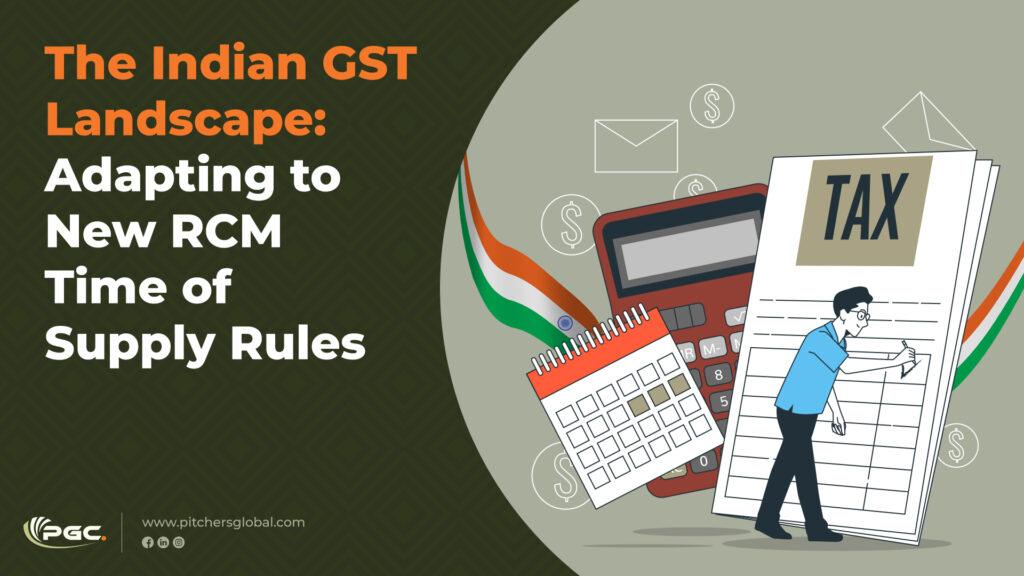The Indian Goods and Services Tax (GST) system is set to undergo a transformative change with the introduction of new Reverse Charge Mechanism or RCM Time of Supply Rules, effective November 1, 2024. This change, mandating self-invoicing for RCM transactions, is a pivotal step for businesses aiming to maintain compliance and secure Input Tax Credit (ITC). Non-compliance could lead to penalties and financial setbacks.

The Indian GST Landscape: Adapting to New RCM Time of Supply Rules
Understanding the Reverse Charge Mechanism (RCM)
The Reverse Charge Mechanism shifts the responsibility of paying GST from the supplier to the recipient of goods or services. This mechanism typically applies in cases such as:
- Unregistered Suppliers: When the supplier is not registered under GST.
- Notified Goods and Services: As specified by the government.
Under RCM, recipients must account for GST payments on transactions, unlike the regular mechanism where suppliers collect and remit the tax.
What’s Changing?
Mandatory Self-Invoicing
From November 1, 2024, recipients in RCM transactions must generate a self-invoice on behalf of the supplier. This invoice must:
- Include all details prescribed under GST regulations.
- Be issued promptly to determine the time of supply and ensure tax compliance.
Key Aspects of the New Rules
- Time of Supply Compliance
The time of supply establishes when the GST liability arises. Delayed issuance of self-invoices could lead to:- Loss of ITC eligibility.
- Non-compliance penalties.
- Loss of ITC
Any delay in self-invoicing could prevent businesses from claiming ITC, negatively affecting cash flow and overall financial health. - Penalties
Non-compliance with the new rules could result in penalties under the CGST Act, making timely adherence essential.
Implications for Businesses
1. Administrative Burden
The requirement for self-invoicing introduces additional administrative work. Businesses must:
- Train staff on the new process.
- Dedicate resources for accurate and timely generation of invoices.
2. Compliance and Audit Readiness
Accurate self-invoicing is critical for GST compliance. Maintaining meticulous records will also help businesses navigate potential audits effectively.
3. Financial Impact
Failure to issue self-invoices on time could lead to the loss of ITC, affecting cash flow and financial planning. Ensuring prompt compliance is key to mitigating this risk.
4. System Modernization
To streamline the process, businesses may need to upgrade their accounting and invoicing systems. Leveraging automation can minimize errors and ensure smooth operations.
RCM Time of Supply – Conclusion
The introduction of mandatory self-invoicing for RCM transactions is a significant shift in the GST framework. While it adds a layer of administrative responsibility, it also reinforces compliance and transparency in the taxation system. Businesses must act swiftly to align their processes with the new rules, invest in technology, and train their teams to navigate this change seamlessly.
By staying proactive, businesses can not only avoid penalties but also optimize their financial strategies and maintain a strong compliance posture in the evolving GST landscape.
Master everchanging GST rules in India’s complex landscape smoothly with Pitchers Global.
